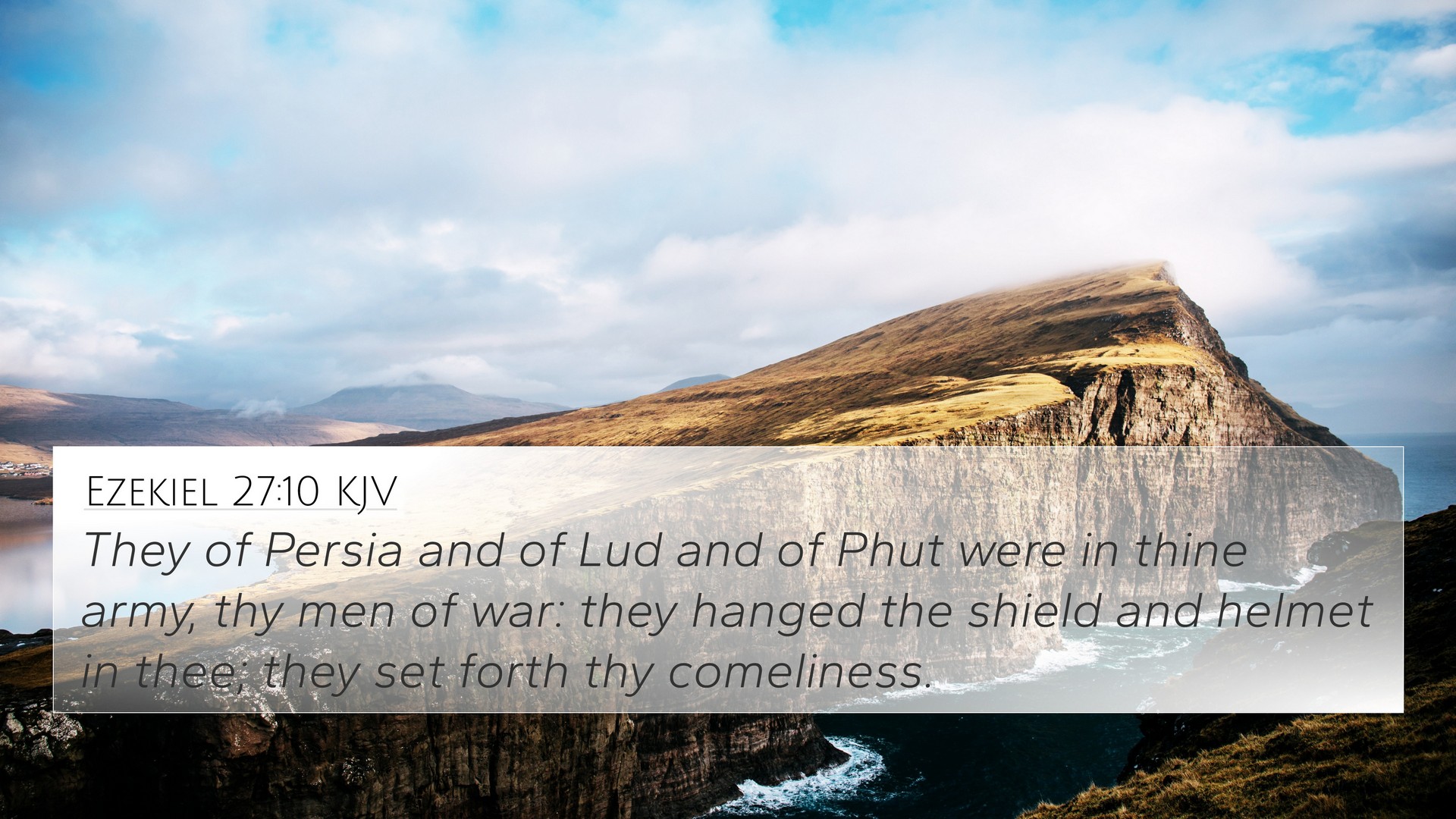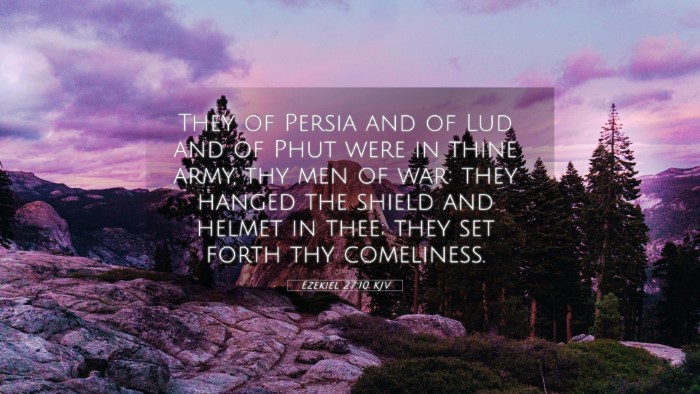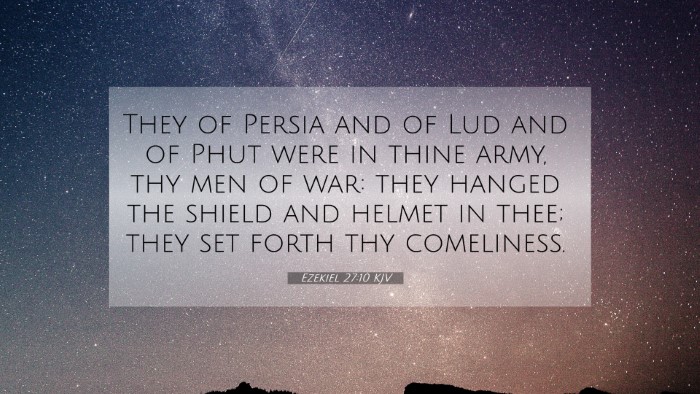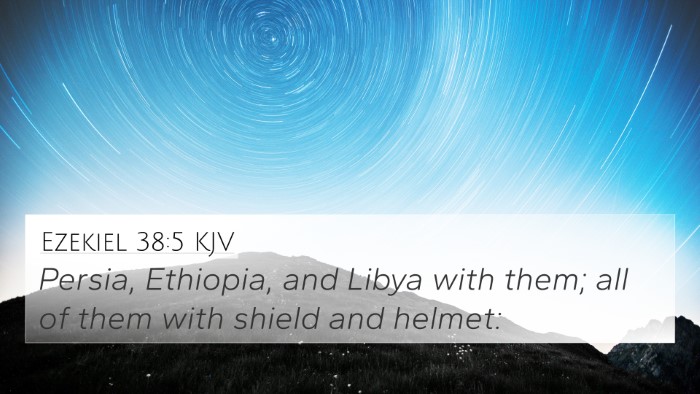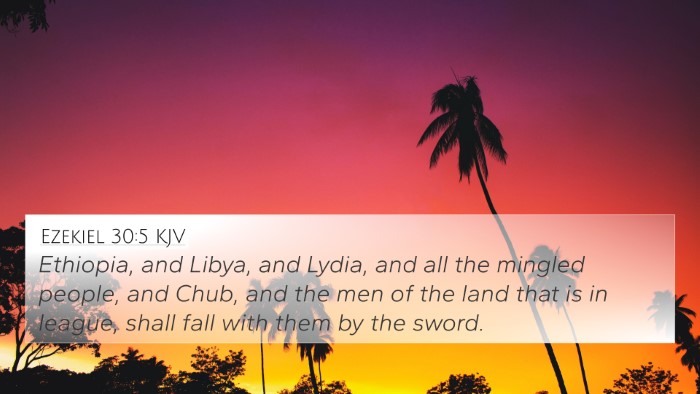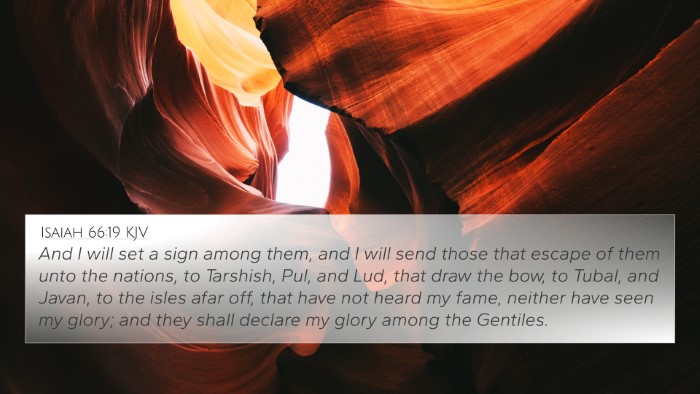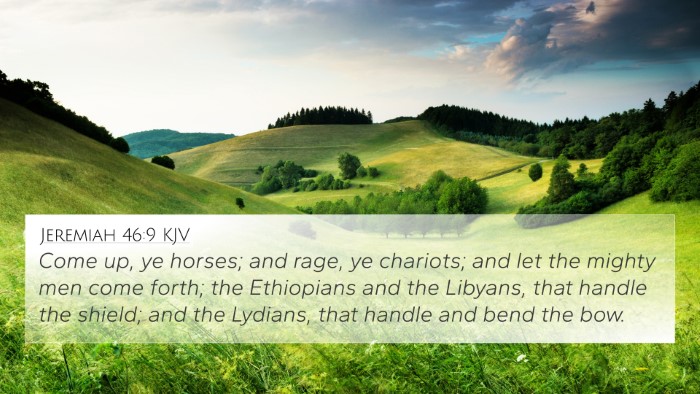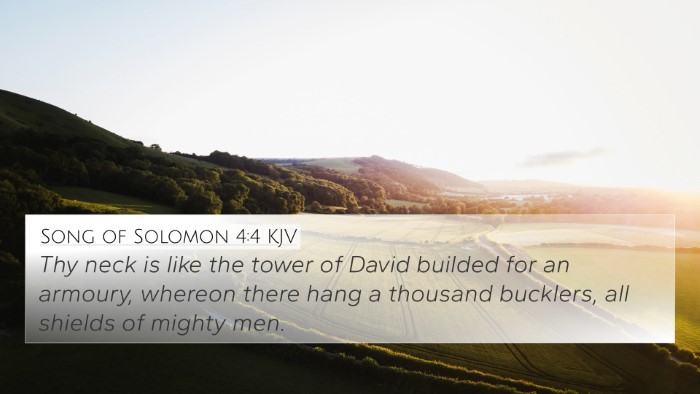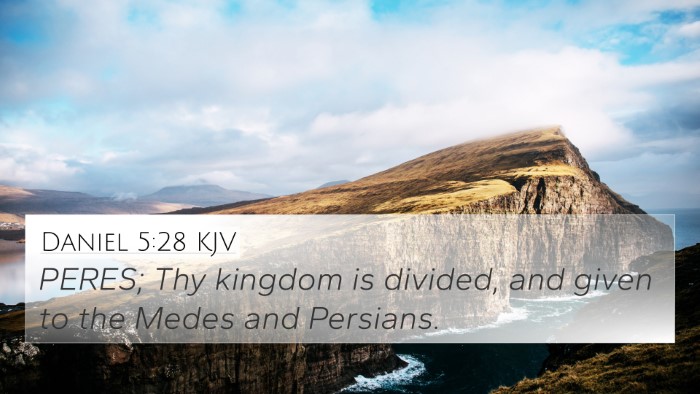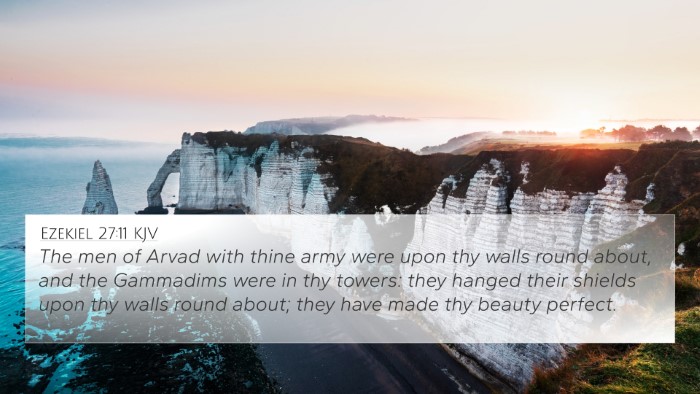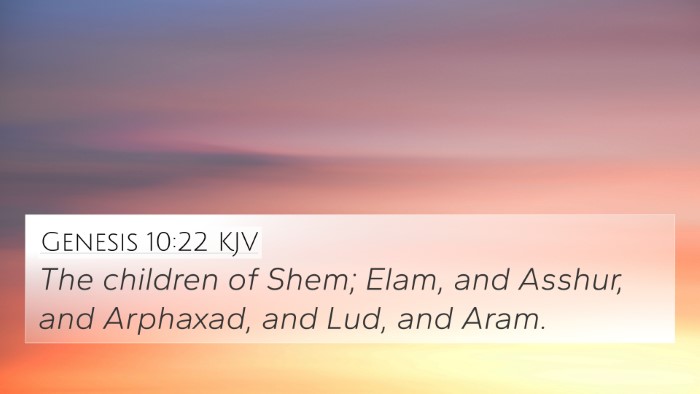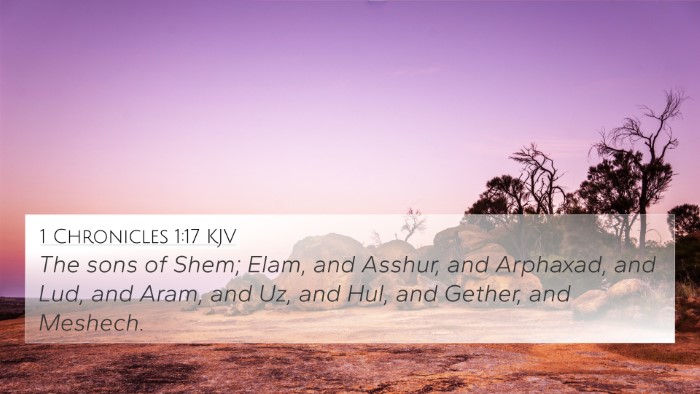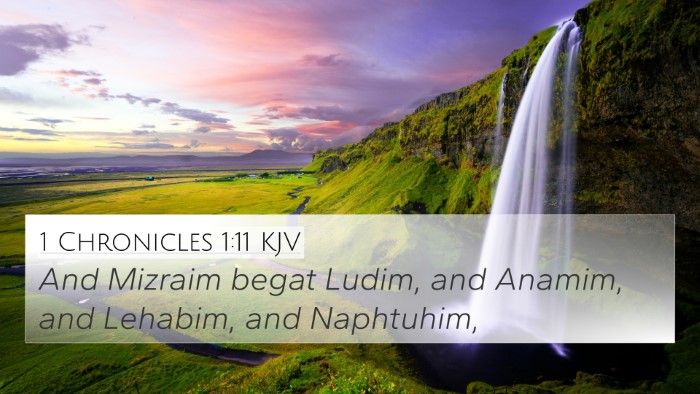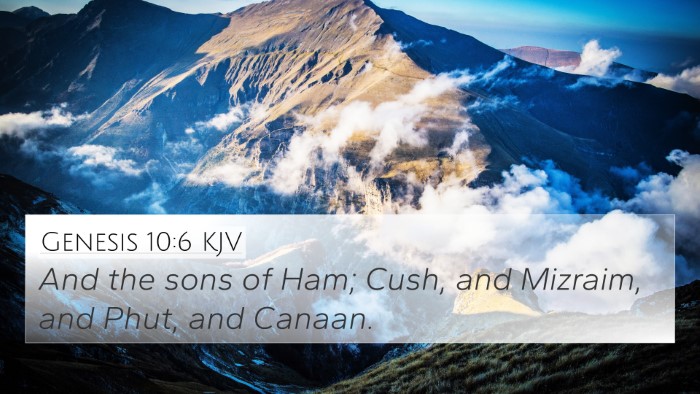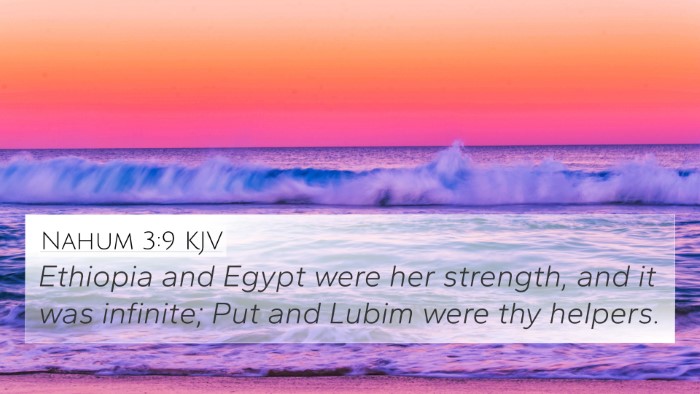Ezekiel 27:10 - Summary and Commentary
Ezekiel 27:10 states: "They of Persia and of Lud and of Phut were in thine army, thy men of war: they hanged the shield and helmet in thee; they set forth thy comeliness." This verse is a part of a larger prophecy that speaks of the riches, trade, and eventual downfall of Tyre, a prominent maritime city. In this passage, a detailed account is given of the nations that contributed to Tyre's power and military strength.
Meaning and Interpretation
The essential meaning of Ezekiel 27:10 emphasizes the thematic connections between the nations and their roles in supporting Tyre’s military might. Here, Persia, Lud, and Phut are named as contributors to the grandeur and defense of Tyre. The imagery of shields and helmets illustrates their preparedness for warfare, signifying the strength and opulence that Tyre once possessed.
Public Domain Commentaries Insights
Matthew Henry's Commentary
Henry notes the significance of these nations as not merely allies but as integral parts of Tyre’s war machine. Tyre, known for its wealth and commerce, relied heavily on these nations to enhance its military capabilities. The mention of their shields and helmets signifies their martial contributions.
Albert Barnes' Notes
Barnes emphasizes the geopolitical implications of this verse. The inclusion of Persia, Lud, and Phut highlights the international nature of Tyre's relationships. This alliance brought strength to Tyre, making it a formidable power of the time. Barnes also reflects on how these allegiances underscore the city's eventual downfall, alluding to the fragility of even the most powerful alliances when divine judgment is present.
Adam Clarke's Commentary
Clarke elaborates on the historical context of these regions, relating them to their geographical locations and influence. He points out that Tyre was indeed a central hub for trade and military prowess due to its relationships with these nations. Clarke also mentions that although these nations provided strength, it ultimately did not protect Tyre from God’s judgment, showcasing a poignant biblical lesson about reliance on worldly power.
Cross References
Ezekiel 27:10 can be linked to several other Bible verses that enrich its meaning:
- Ezekiel 30:4 - Discusses the impending judgments on nations, including Egypt, that illustrates God's sovereignty over nations.
- Isaiah 23:1 - Addresses the fall of Tyre and emphasizes its commercial failures and the lament over its demise.
- Jeremiah 25:22 - Refers to the kings of the nations, portraying the universal nature of God's authority.
- Revelation 18:17 - Offers a prophetic view of the fall of Babylon, echoing Tyre's fate regarding wealth and power.
- Luke 12:20 - Speaks to the folly of relying on riches, aligning with the fate that awaited Tyre's excessive reliance on earthly goods.
- Psalm 48:12-13 - Celebrates the strength and strategic importance of Jerusalem, contrasting with Tyre's eventual ruin.
- Isaiah 14:31 - Warns of the desolation that comes to cities that defy God, connecting back to Tyre's story.
Thematic Connections
The verse encapsulates a broader theme of dependence and downfall seen throughout scripture, illustrating how nations may rise through alliances and military strength but ultimately fall to divine judgment. The connections between biblical texts in this context provide a rich tapestry for studying God’s judgment on pride and reliance on human strength.
Conclusion
In summary, Ezekiel 27:10 offers vital insights into the relationships between nations during biblical times, the nature of strength through alliances, and the eventual consequences of turning away from God’s purposes. The use of inter-Biblical dialogue through cross-references serves as a powerful tool for understanding the interconnectedness of scripture and the messages conveyed within.
